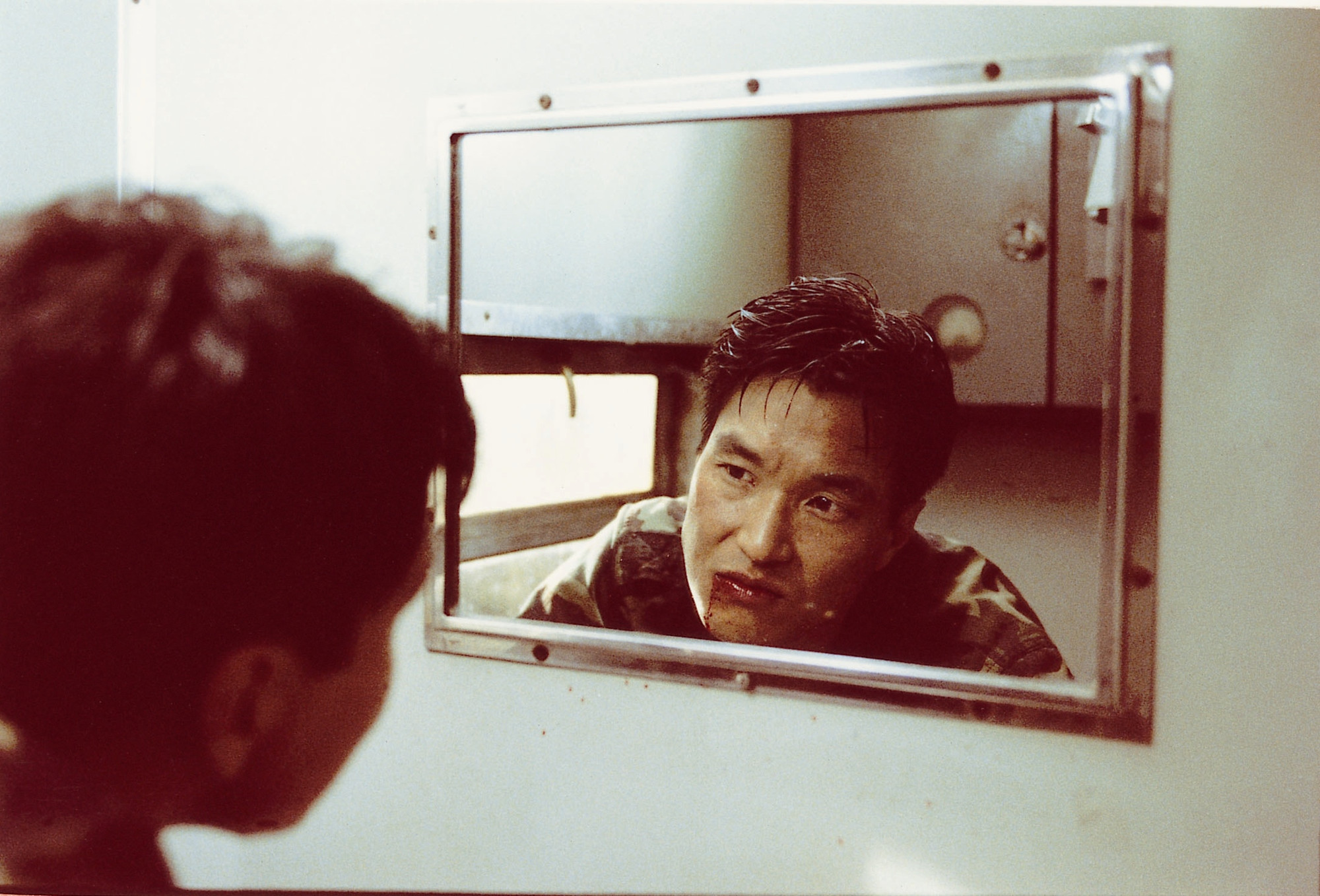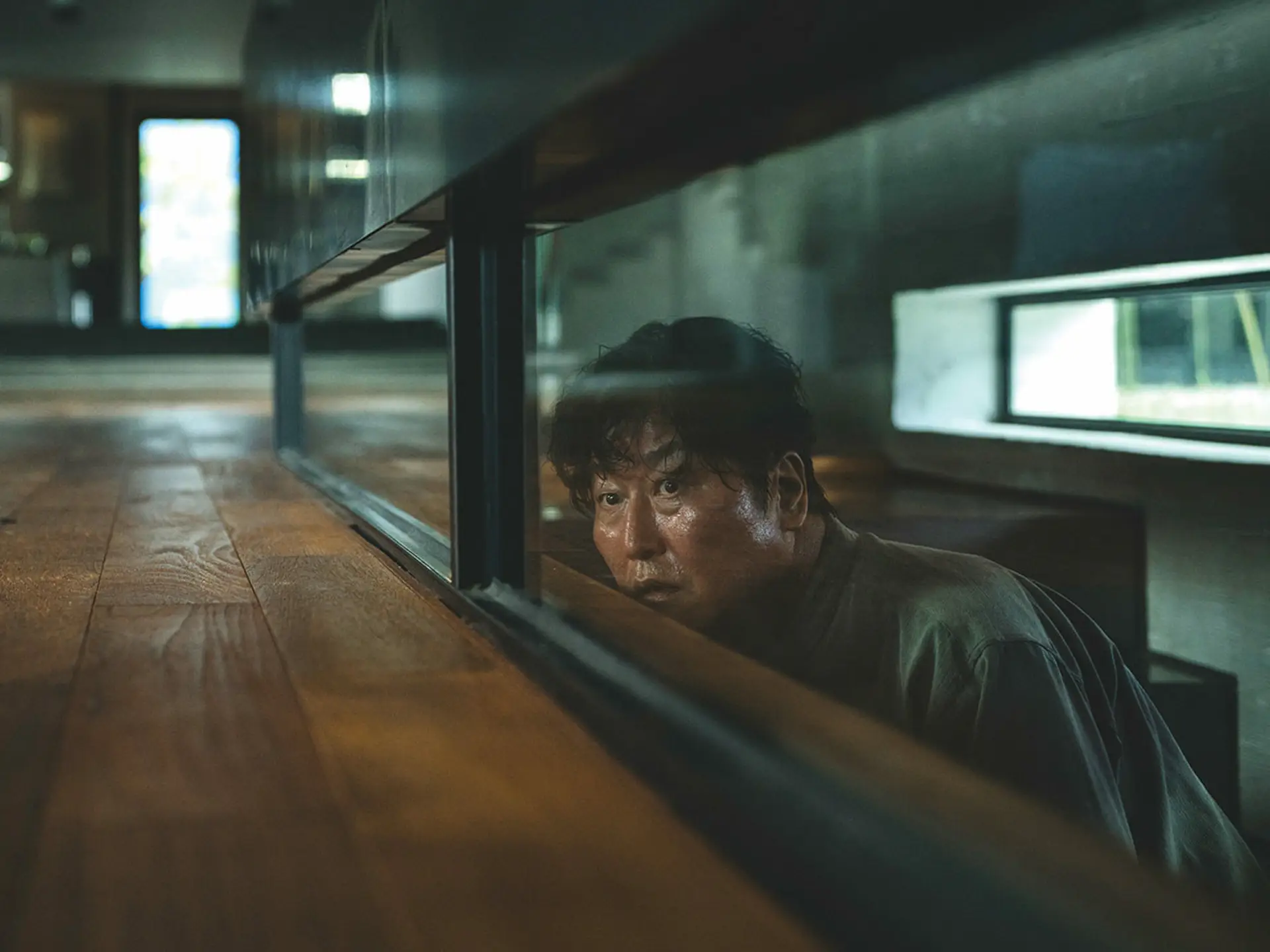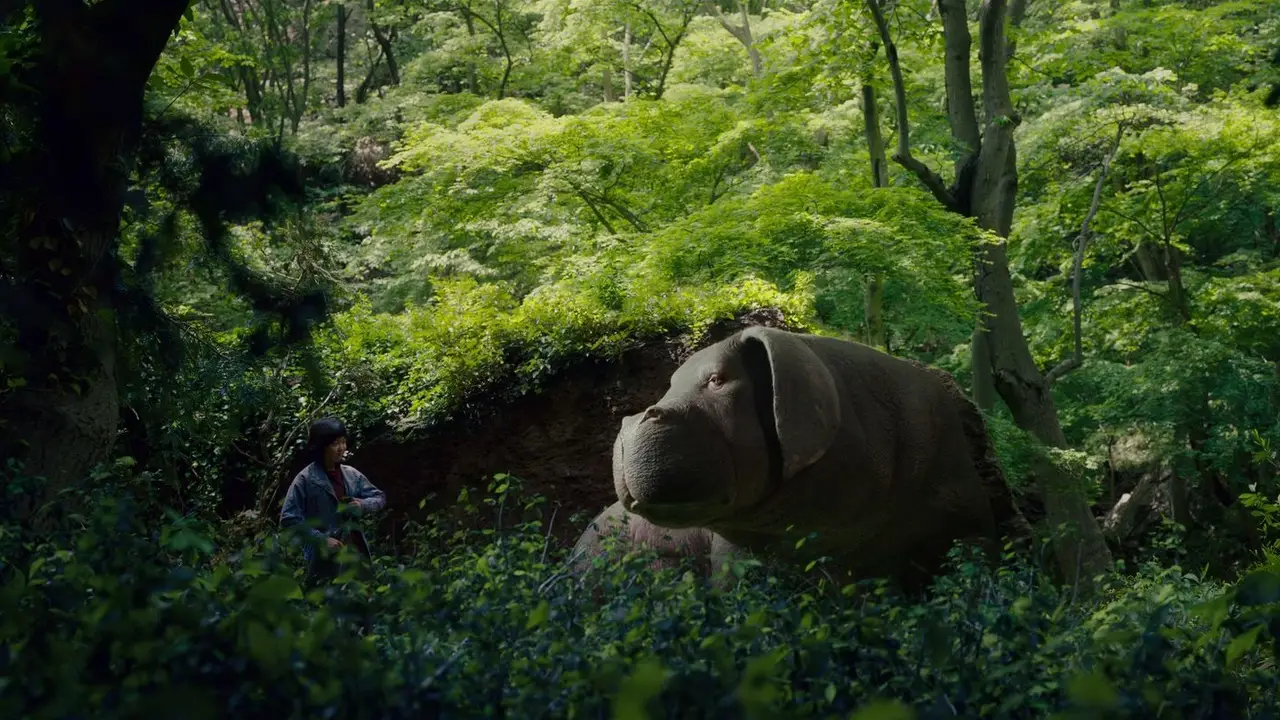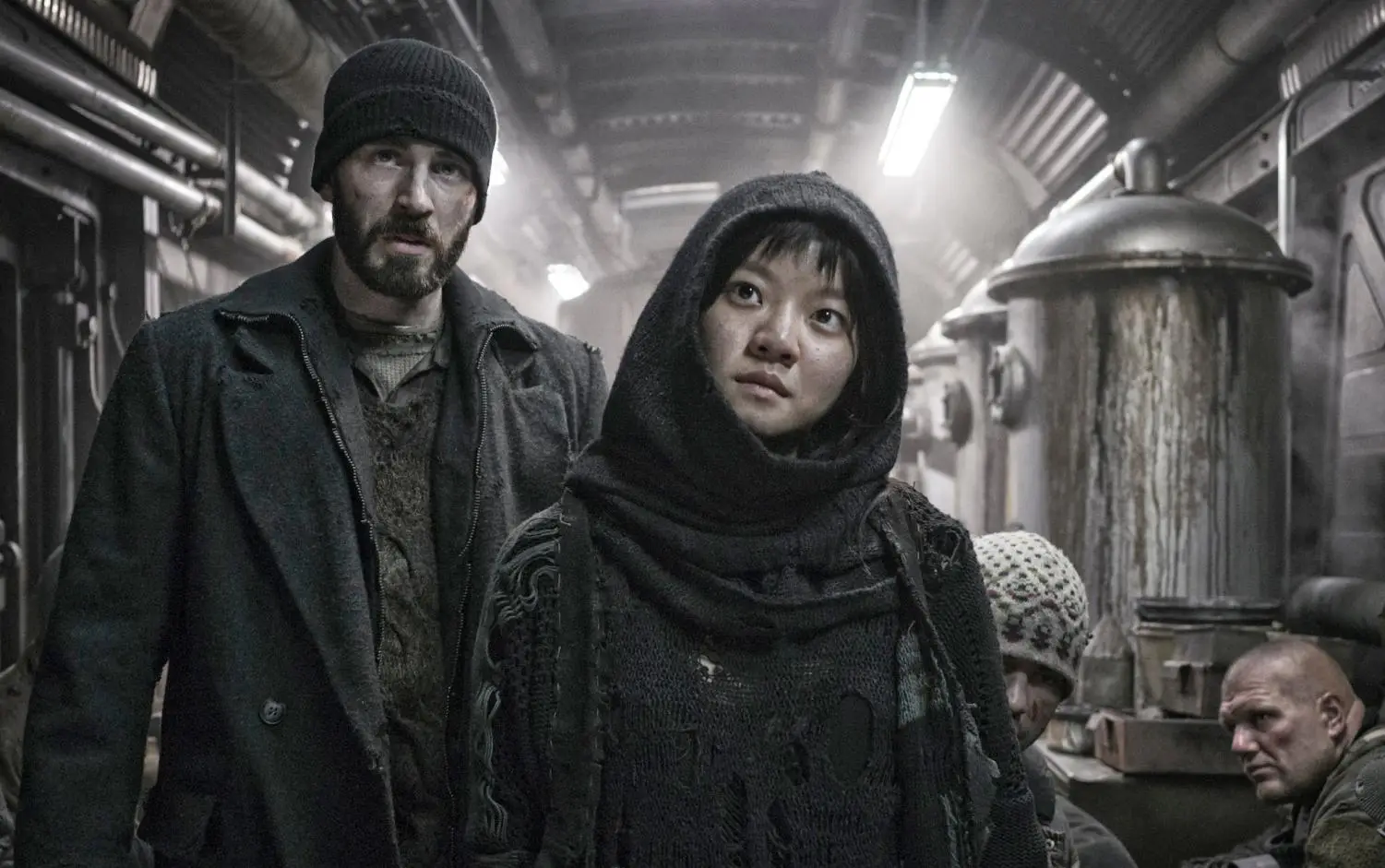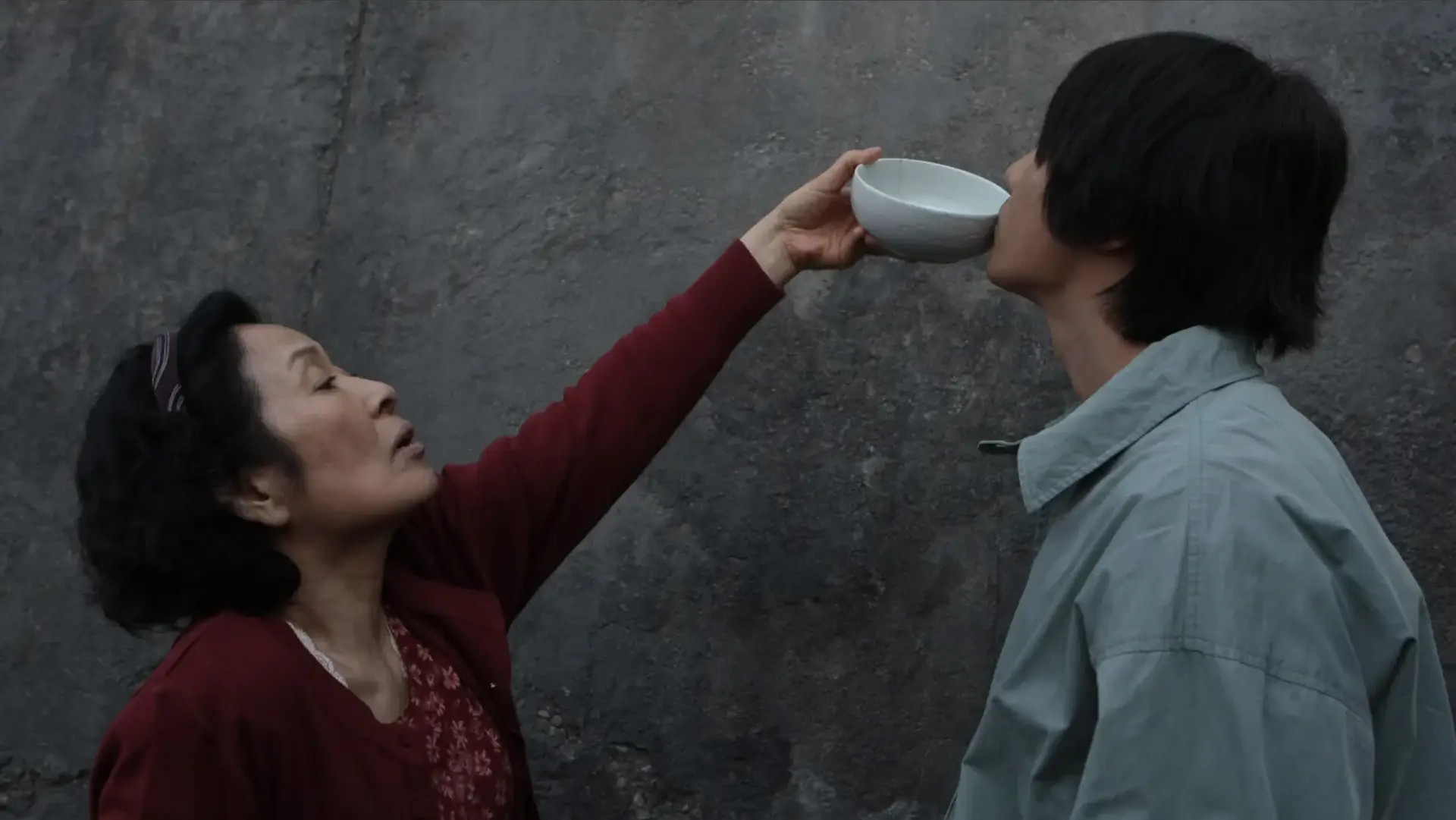Green Fish (초록물고기) 1997
“Green Fish” is the feature-length debut of Lee Chang-dong, who had previously found success in Korea as a novelist. He’d also received writing credits for both “To The Starry Island” (1993) and “A Single Spark” (1995), directed by Park Kwang-su. In this film, Lee skillfully blends his melodramatic style with elements of gangster noir. Domestically, the film won several awards and attracted a significant audience at the box office.
The story follows Mak-Dong (Han Suk-kyu), who returns home on a train after completing his military service. As he leans out of the train door, he notices a woman staring into the distance, also hanging out of a carriage door. When she turns and notices him, her scarf flies off and ends up draped over Mak-Dong’s face. Seeking to return the scarf, he finds her being harassed by three men. After intervening and helping her escape, Mak-Dong gets beaten up in the process. Seeking revenge, he exits the train and hits one of the men on the head with a commemorative stone from his military service. However, he fails to get back on the train before it departs, leaving him to trudge back to his hometown of Ilsan.
Upon his return, Mak-Dong is taken aback by the dramatic transformation of Ilsan during his time away. The once serene and picturesque countryside, filled with lush fields and gentle hills, has been overshadowed by a sprawling expanse of high-rise apartments, casting long shadows over what nature remains. The relentless march of urbanization now encircles his family’s quaint and remote home, altering the landscape he once knew so well. His mother and older brother, who has cerebral palsy, greet him on his arrival. He then meets up with his three other siblings, who struggle to get by. Mak-Dong assures them that he will earn money and suggests that the family come together to run a small restaurant or business.
Mak-Dong’s mother reveals that he missed a call from a mysterious woman. Intrigued, Mak-Dong immediately tries to return the call but finds her difficult to reach. Driven by curiosity, he sets off on a journey to Yeongdeungpo. Known for its vibrant nightlife, Yeongdeungpo starkly contrasts Ilsan’s nature-filled surroundings.
Upon arrival, the phone number leads him to a dimly lit nightclub. There, he once again encounters Mi-ae (Shim Hye-jin), the enchanting woman from the train who had held onto the bag he left behind. It becomes clear that Mi-ae navigates a world of charm and danger; she is not only a nightclub singer but also embroiled in a complex relationship with Bae Tae-gon (Moon Sung-keun), the imposing leader of a local gang.
Mak-Dong becomes increasingly drawn into Mi-ae’s tumultuous life as their paths intertwine. Through her connection to the powerful Tae-gon, he secures a position within the gang, entering a shadowy realm that offers financial opportunities and moral challenges. What began as the pursuit of a missed call transforms into an invitation to the harsh realities of life in the city’s underbelly.
Lee highlights the strong contrast between the two locations by focusing on Ilsan during the day and Yeongdeungpo at night, almost exclusively. While Mak-Dong is naive and innocent in his dreams and aspirations, Bae has become hardened and ruthless. The threat of urbanization looms over Ilsan—will it face the same fate as Yeoungdeungpo?
Lee Chang-dong employs reflections and glass throughout the film. Mi-ae and Mak-Dong are frequently shown with their faces reflected in mirrors, and the filmmaker also uses puddles and sunglasses to enhance the imagery. There are numerous instances where the characters are shot through glass, such as in a phone booth or a car windshield. These reflections highlight the vulnerability and true nature of the characters. At the same time, the phone booth serves as a space where Mak-Dong expresses his genuine desire to return to his childhood family life.
Lee utilizes many tropes of gangster noir, but the key distinction is that Mak-Dong’s character does not undergo a significant moral transformation. He remains steadfast and avoids becoming power-hungry or desperate. Despite his attraction to Mi-ae, neither can escape Bae’s grasp. Mi-ae occasionally boards a train and leaves, but she always returns. For Mak-Dong, his loyalty to his family—both biological and his new gangster family—drives him. His only dream is to live happily with his family, as they did when his father was alive. However, that dream is unattainable; just as Ilsan is no longer the place Mak-Dong remembered, his father is deceased, and his family is fragmented and hardened.
Mak-Dong embodies the past, while Bae represents the future—crafty and conniving but never reckless, always doing what it takes to survive.
Although “Green Fish” may not reach the high marks of Lee’s later works, it is a solid debut. The film showcases Lee’s interest in characters who are neither purely good nor bad. His sensitivity and melodramatic style, combined with the tropes of gangster neo-noir, result in an engaging film.
